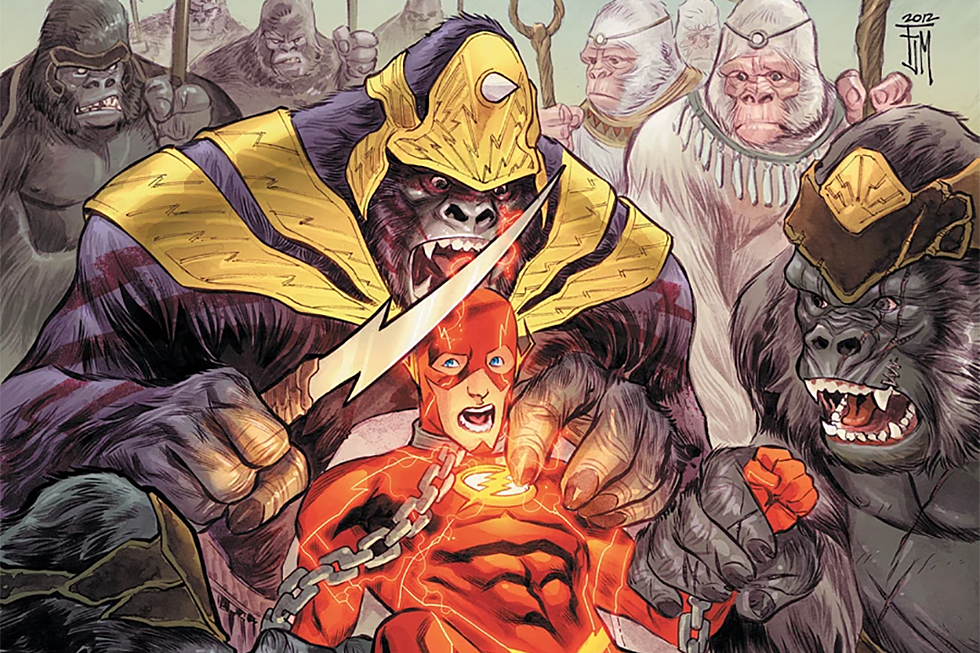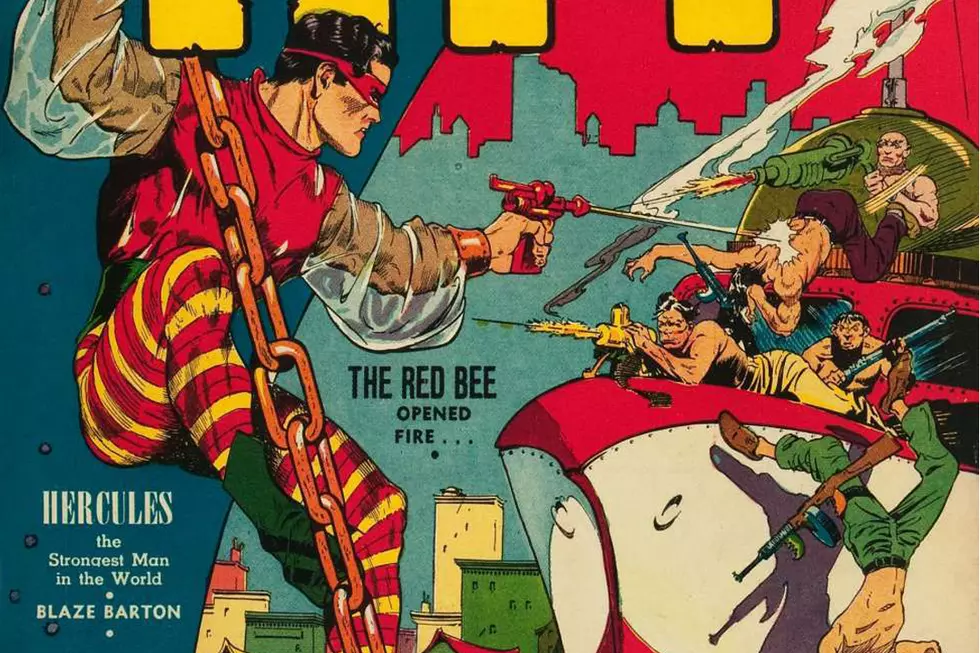![Writing My Titans: Marv Wolfman On Returning to ‘Teen Titans’, with Nicola Scott and Marc Deering [Interview]](http://townsquare.media/site/622/files/2015/03/convergence-tt.jpeg?w=980&q=75)
Writing My Titans: Marv Wolfman On Returning to ‘Teen Titans’, with Nicola Scott and Marc Deering [Interview]
You can’t keep a good Teen Titan down. On the screen, on the page, in and out of feathered disco unitards --- the public gobbles them up and asks for more. DC’s Convergence event will unite classic Titans writer Marv Wolfman with artists Nicola Scott and Marc Deering for a trip back to the 1980s in Convergence: New Teen Titans, a tale which promises to pit the adolescent do-gooders against the Tangent Universe’s Doom Patrol.
Will Robotman and Cyborg square off in a battle for riveted supremacy? Will Beast Boy’s history with the Patrol find him trapped between his past and present? Will Starfire’s legendary ultra-perm emerge from the chaos unscathed? With these issues in mind, ComicsAlliance sat down with the creative team to discuss the Titans’ various eras, their enduring appeal, and what the future holds for the classic super team.
ComicsAlliance: The Teen Titans have been popular across multiple decades and mediums now. What makes them so enduring?
Marv Wolfman: I took months to develop the group before presenting them, so needed time was put into their creation and back stories; all of which served to create a workable character and group dynamic. They all have emotional elements that the readers can understand and their personalities work off each other to allow a family feeling, but also built-in areas of major differences. On top of that, their origins and powers were created to allow entry into any kind of story I wanted to write. Starfire: science fiction, Raven: horror, Cyborg: street and tech, Wonder Girl: mythology, etc.
Nicola Scott: Everyone goes through that period, transitioning out of teen preoccupations to the responsibilities of adulthood. Their stories have always been more about them and their relationships to each other than whatever context they find themselves in. It's this melodrama that is so relatable.
CA: Marv, you defined the Titans as we’ve come to know them. What is it like returning to them? How does the experience of writing the Titans today compare to the classic 1980s run — or even to the episodes you wrote of the 2003 cartoon?
MW: I feel I've never left the Titans, as I've written them so often after my 16 year run on the book. Character-wise they haven't changed except in getting older, which means different problems and needs. Writing styles have drastically changed, but I've always tried to evolve with the times. Mainly I consider them as real people with real and personal concerns and write them that way.
Regarding the cartoon show; I loved the show but I wasn't writing my Titans. I was writing theirs. Comics should be personal and reflect the talent. Animation is about each episode fitting into the whole so it's not about my personal approach to the characters. I loved the show because despite the major differences with the comic, it absolutely caught the essences of each character stripped to the bone.
CA: Nicola and Marc, what distinguishes drawing the Titans as opposed to other superheroes and superteams?
Marc Deering: Their uniforms were, and are, very distinguishable against everyone else’s. There are no costumes like theirs, which makes them instantly recognizable.
NS: The action is secondary to their personal conflicts. While they do often operate on a grand stage, it's all the intimate, personal moments that carry the story. Getting a chance to draw a group of characters in a constant emotional high is really fascinating.
CA: Marv, you’ve been in the comics industry for decades now. What are some major changes you’ve noticed?
MW: Comics today are much more personal and we can now sell books on nearly every subject matter, not just super heroes, which I still love to do. But comics are essentially just story and art, which means we should be able to tell any kind of story we want, for any audience without restriction. Now add to that the possibilities of digital we've got an ever growing future.
CA: We’ve got Titans in comics, Titans in animation, and soon, a live-action show on TNT. What can you do with the team in the comics that can’t be done in any other medium?
MW: We have no budget other than the imaginations of the writer and artist. We can also reveal the characters in ways you can't in film. We all present different strengths.
MD: Tell any kind of story we want. That’s the freedom and joy, for me, of comics. There is simply no restrictions, whatsoever, in the kind of stories that can be told.
NS: Keeping them teenagers and consistently relevant for decades. Nowhere else has or would that be possible.
CA: Do you see yourselves as leaving a path for other Teen Titans creative teams to follow into the post-Convergence future? Do you have any hopes for these characters in the future?
MD: This is completely up to the fans and how they respond. We all always hope to see more of our favorites. They are a great cast of characters.
NS: I always hope to see this version of these characters pop up. They're the benchmark.
MW: Every creator starts out as a fan of what came before, then we build on that with our personal views. I hope whatever I've done influences others, but they take the characters to places even more exciting. If they do that while honoring though not necessarily adhering to the character's past, it'll all be good.
More From ComicsAlliance

![MVP: Who Is The Greatest Teen Titans Member? [Poll]](http://townsquare.media/site/622/files/2017/03/Teen-Titans-Vote.png?w=980&q=75)


![‘Deathstroke’ Takes On The ‘Titans’ And ‘Teen Titans’ In May Crossover ‘The Lazarus Contract’ [Exclusive]](http://townsquare.media/site/622/files/2017/02/lazaruscontract-feat.jpg?w=980&q=75)


![Listen, Bud: Nine Super-Hero Cartoon Themes Worth Remembering [Music Week]](http://townsquare.media/site/622/files/2017/01/themesongs.jpg?w=980&q=75)

